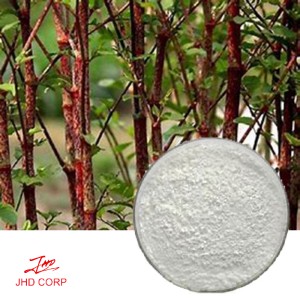Why can marigold flower extract be eaten but not used for skin care?
Marigold flower extract, derived from the vibrant and aromatic marigold flower, has gained popularity for its potential health benefits. This extract is commonly consumed as a dietary supplement or added to various food and beverage products. However, when it comes to skincare, marigold flower extract is not typically recommended for topical use.
One of the main reasons why marigold flower extract lutein is not commonly used in skin care products is due to its potential to cause skin irritation or allergic reactions. While marigold flowers are generally considered safe for consumption, they contain certain compounds that may be irritating to the skin when applied topically. These compounds include various volatile oils and flavonoids, which can cause redness, itching, or even rashes in some individuals. Therefore, it is advisable to exercise caution when considering the use of marigold flower extract in skin care routines.
Another factor to consider is the concentration and purity of the marigold flower extract. Skin care products often undergo rigorous testing and quality control measures to ensure their safety and efficacy. However, when using marigold flower extract directly on the skin, it can be challenging to determine the exact concentration and purity of the extract. This lack of standardization can increase the risk of adverse reactions or ineffective results.

Furthermore, lutein from marigold flower extract may not possess the same beneficial properties when applied topically as it does when consumed internally. The compounds present in the extract may have different effects on the skin compared to their effects on the body's internal systems. Therefore, while marigold flower extract may offer potential health benefits when ingested, its effectiveness and safety for skin care purposes remain uncertain.
It is important to note that individuals with sensitive skin or a history of allergies should exercise extra caution when considering the use of marigold flower extract in any form, whether for consumption or topical application. It is always recommended to perform a patch test on a small area of skin before applying any new product to the entire face or body.
In conclusion, while marigold flower extract can be safely consumed as a dietary supplement, it is not commonly recommended for use in skin care products. The potential for skin irritation or allergic reactions and the lack of standardized concentration and purity make it a less ideal choice for topical application. As with any new skincare ingredient, it is best to consult with a dermatologist or skincare professional before incorporating marigold flower extract into your skincare routine.














